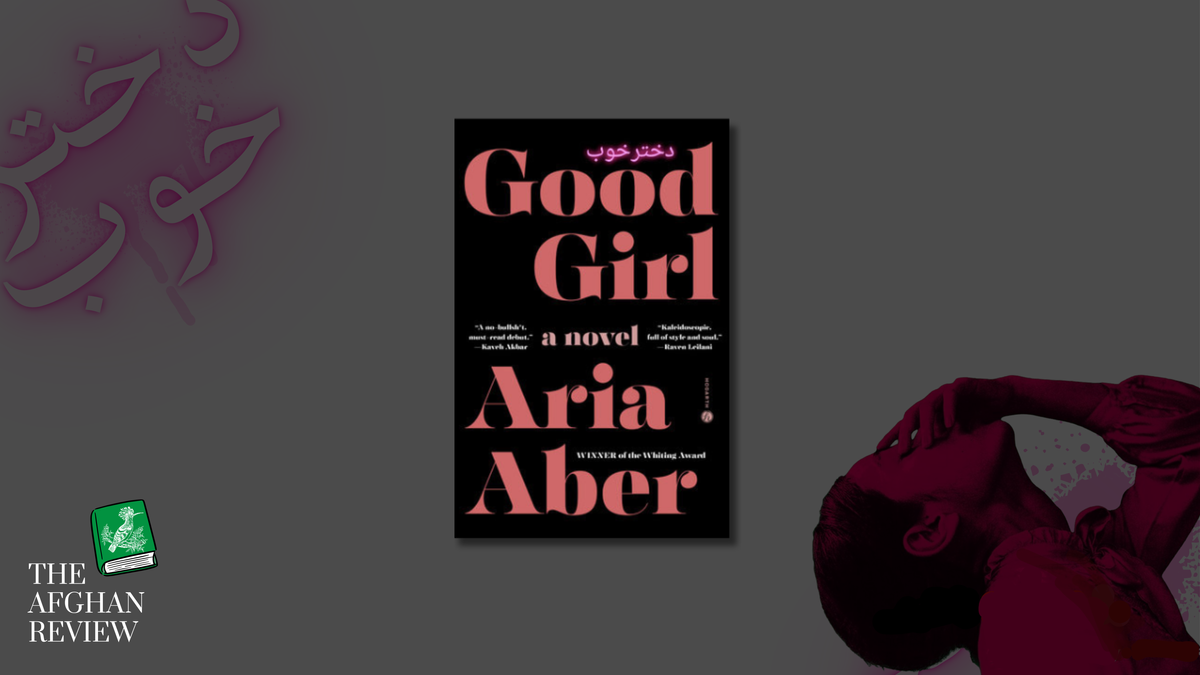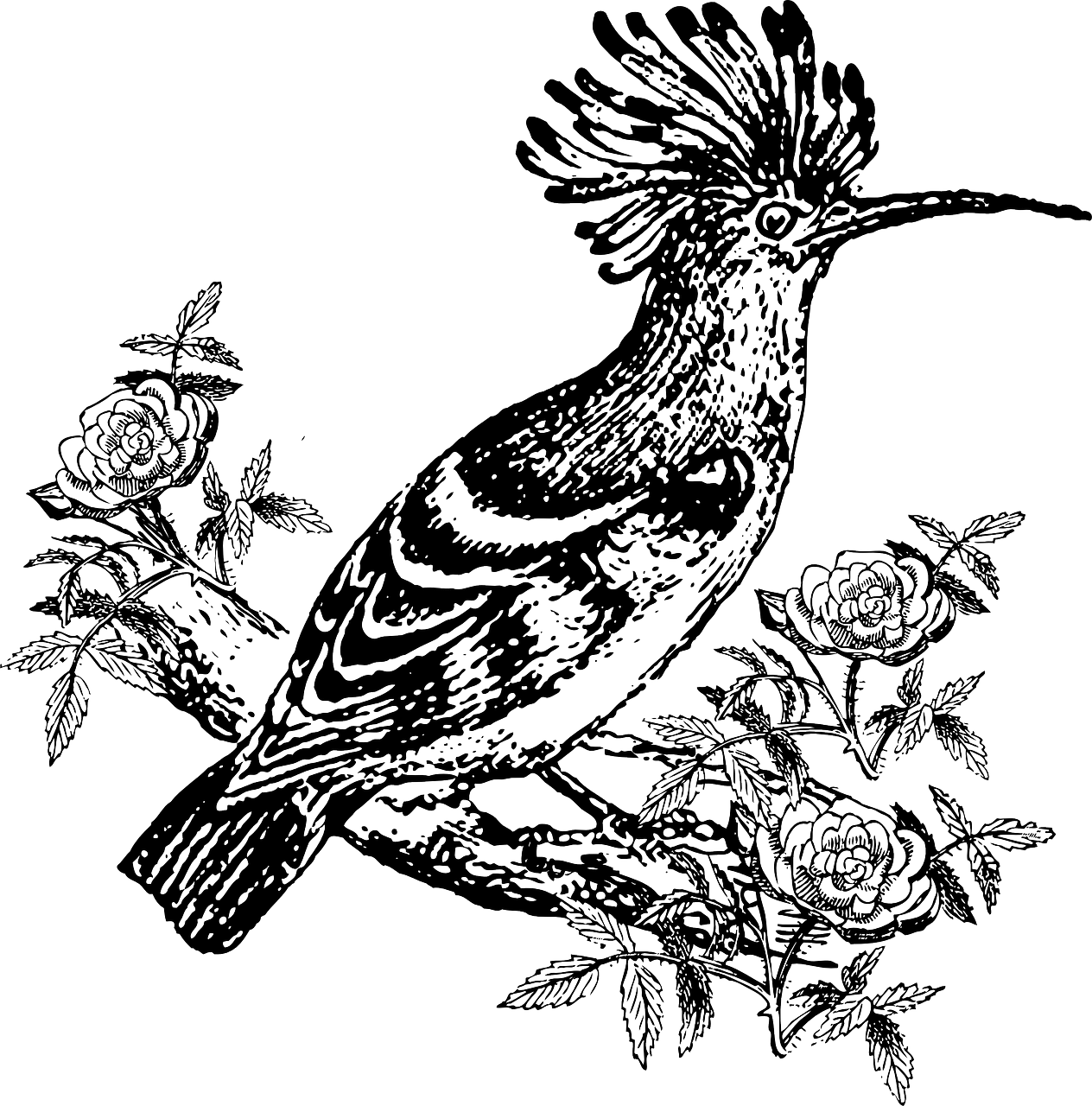Aria Aber's Poetic Prose Resists Definition

In Good Girl Aria Aber sets her frame on the underbelly of Berlin to show a city chaotic with poverty, racism, and xenophobia. A shadow of doubt covers the city, dimming everything but the voice of Nilab Haddadi, the adolescent narrator, whose knack for finding fault in everything, but her own intellectual safety bubble, alienates her. Despite its flaws, the book reveals important insights into the anxieties of Afghan girls in diaspora.
Nilab Haddadi is an 18-year-old living in a public housing unit in Berlin with her father and the memory of her mother, who passed away a couple of years prior. Nila, as she’s often referred to in the book, takes undergraduate classes at a local college, aspires to be a photographer, and waits tables to finance her lifestyle of partying. She spends most of her free time at the Bunker, a club that plays techno music and caters to anarchists and other nonconformists. She’s at the Bunker when she meets and falls in love with a much older writer, Marlowe Woods. He’s a Gatsby-esque character with fame, popularity, and generosity, at least with his narcotics. A relationship with Marlowe carries the potential for artistic growth, bottomless pleasure, and refuge from a sordid home life. Nila is easily seduced. Once together, their connection slowly anneals to a trauma bond that’s hard to read, not because of the toxicity but because it could be more eventful.
Nila’s apathy towards belonging in her "ghetto" immigrant neighborhood or her Afghan culture is contrasted by her efforts to fit in in the book’s other worlds: there is the underworld of the Bunker, the upper-class idyll of her German classmates and friends, and Marlowe’s glittering world of international artists. Nila wants to climb social hierarchies and have what the rich and genteel have. She wants to get high in the Bunker with "strange bald men" who can't be categorized, and she wants to be the smart one rattling off minuscule details of Kafka’s life to classmates. Her vocabulary, which consists of the kinds of self-conscious technical terms suitable for defending a philosophy dissertation, reflects her grandiose desires.
An award-winning poet, Aber is at her best in verse. It’s hard not to admire her expansion of the novel as a form that incorporates the ambiguity and image-heavy lyricism of poetry. Her words are often surprising and mystifying, and her humor is electric. But as prose, the poetry can feel like a compromise. The paragraphs are dense and often weighed down by images in successive, fragmented sentences that race to push the reader’s focus to its limit. Aber expects her reader to connect images and construct arguments for her. It feels less like co-creation and more like heavy lifting.
A central issue in the book, as the title suggests, is Nila’s resistance to being good. Nila is not a good student, a good daughter, a good Afghan, a good Muslim, or a good friend, and the shame of her failings eats her up. She avoids further shame by hiding parts of herself depending on her audience; she hides that she’s Afghan, when she is not with Afghans. When she is with Afghans, she hides that she doesn’t follow Afghan cultural mores. She takes more care to hide her heritage than her apathy for the rules, and the imbalance seems to be a consequence of spending most of her time in non-Afghan worlds, which is regrettable.
Good Girl steers clear of the diasporic bent to nostalgia for a homeland or home—Nila rarely returns to the building her family lives in, never makes any improvement on it, doesn’t even clean her room. It's great as a feminist critique of domestic expectations for Afghan girls. It veers into overcorrection when the hatred for home manifests as offensive depictions of non-white characters; Nila describes other Afghans with the degrading language of an orientalist, comparing them to wild animals.
Despite her strong feelings towards her heritage, she never does anything to fit in with Afghans or make her Afghan parents proud of her. The Afghan identity feels forced on her, and she spends too much time avoiding it to draw much meaning from it, like a mole whose consequences can be as little as lessening the beauty in a face or as great as causing an early melanomic death, depending on how deeply it’s considered. Here, being Afghan is not considered deeply enough from the vantage point of person who belongs (or wants to belong) to make a lasting impact.
This creates a confusing plot hole once Nila’s hidden heritage becomes a major storyline: If she doesn’t care about being Afghan, why would anyone else care? Aber attempts to fill the hole by chronicling the recent rise of fascism and islamophobia in Berlin. The collage-style, stream-of-consciousness technique applied effectively in other parts of the book falls through here as lives are reduced to blurs of disconnected images. It reads like a news report and is similarly unaffecting. Aber’s lens is often too wide and includes too many people to effectively capture the particulars of institutionalized islamophobia. She seems unable to create language around an underrepresented experience without using other peoples’ marginalizations as a crutch. At the story’s climax a hate crime against Afghans occurs that feels random, heartless even, as if it’s a final effort to bring to life an islamophobia she couldn’t communicate without arbitrary death.
Perhaps the most jarring and confusing aspect of the book is that Nila would rather be Israeli than Afghan. She calls herself Israeli at least three times—Is Aber arguing that Afghan poverty or gender apartheid are worse than the ethnic cleansing of Palestinians? This might be an attempt by a German author to make amends for the Jewish Holocaust, yet the normalization of another genocide doesn’t feel justified or appropriate.
The characters are haphazardly constructed and difficult to tell apart. None leave much of an impact, least of all the various white people Nila centers and whom she envies with the drama of a person whose meanness readers are meant to excuse because of her unhappiness. Along with skinheads and homeless people, Afghans are some of the least sympathetic people in the book. Even as they manage to transcend this position, changing attitudes have little effect on Nila’s relationships outside of her head.
The story lacks connection in general, both across people and the worlds of the book. By the end, it isn’t clear what Aber wants to say about the relationship between German society and the brutality of Afghan lives in diaspora and in Afghanistan.
Does Nila long for love and belonging? Safety? It’s hard to tell. Her dramatic reactions to her heritage suggest a desire to surrender, to be herself in public, and give others the opportunity to accept her for who she is. Yet by the end of the 345-page book it’s hard to say who that is.
Good Girl by Aria Aber | Hogarth (PRH) | 2025 | 345 pp. | $29.00
Publication Date: Jan. 14, 2025
Review Posted Online: Dec. 9, 2024
